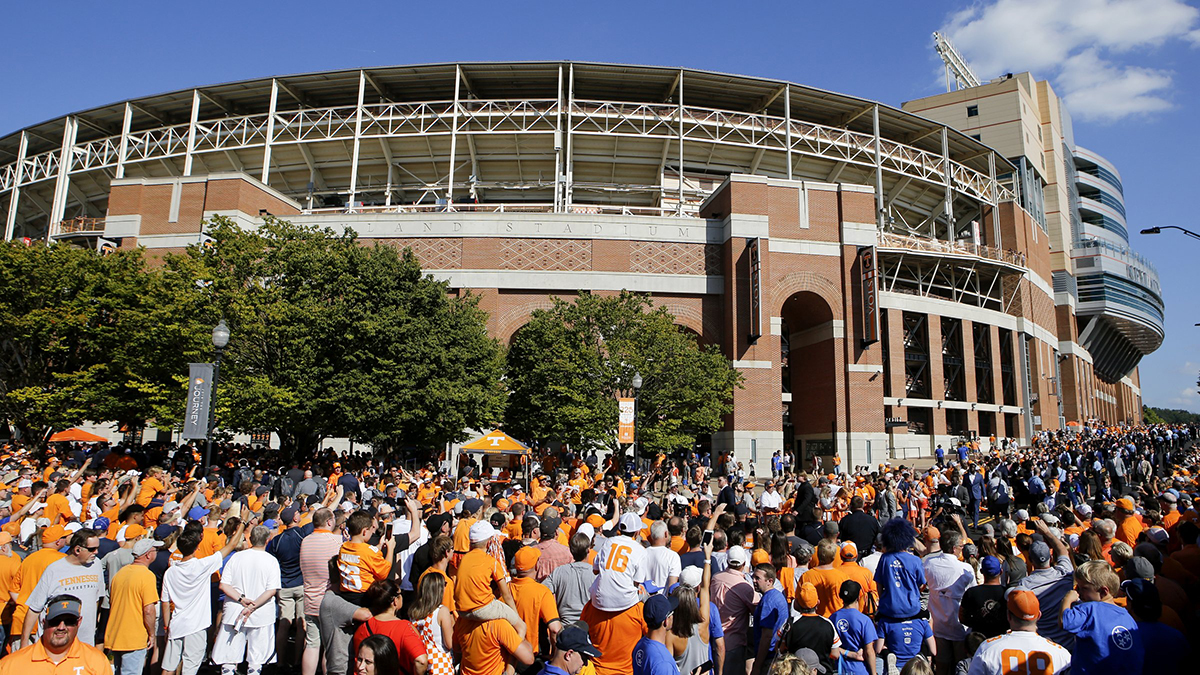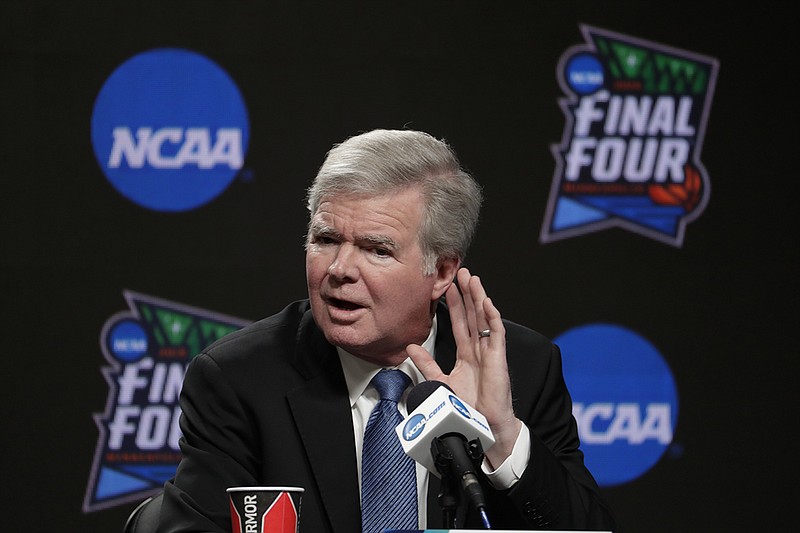NCAA president Mark Emmert said the coronavirus pandemic has made it unlikely all schools will be ready to begin competing in college sports at the same time.
The goal, he said Friday night, is for every team to have an equal amount of preparation time before its season starts, and there could be some competitive inequities caused by schools having varied timelines for reopening campuses.
Emmert appeared with Dr. Brian Hainline, the NCAA's chief medical officer, in an interview shown on the NCAA's official Twitter account Friday night.
Major football conference commissioners have stated their goal is for all 130 teams in 10 conferences across 41 states to begin the season at the same time. As states impacted differently by the COVID-19 pandemic reopen on different schedules, the possibility rises that the season will lack a uniform start date and number of games.
"I think we should assume that's going to be the case," Emmert said.
For football, the working plan is six weeks of conditioning and practice before playing games, though that's not "set in stone," Hainline said.
"All the various (NCAA) member committees and the conferences are all talking about: What does it mean if we have that sort of scenario where we've got different opening times or different opening models," Emmert said.
"What does it mean if you look at a conference, for example, if a conference has some schools open and some not? You can't run a regular schedule if you've got that scenario. How do you adjust all the rules to provide as much flexibility as you possibly can to let student-athletes have a good experience in that season?"
 Staff photo by C.B. Schmelter / Fans watch as Tennessee football players and coaches take part in the Vol Walk before their game against BYU on Sept. 7, 2019, at Neyland Stadium in Knoxville. Tennessee announced this week that it plans to have students return to campus for the 2020-21 fall semester, an expected necessary step to have student-athletes return to competition.
Staff photo by C.B. Schmelter / Fans watch as Tennessee football players and coaches take part in the Vol Walk before their game against BYU on Sept. 7, 2019, at Neyland Stadium in Knoxville. Tennessee announced this week that it plans to have students return to campus for the 2020-21 fall semester, an expected necessary step to have student-athletes return to competition.Football Bowl Subdivision schools are required by NCAA rules to play at least nine games, including five at home. Their season is scheduled to begin in earnest in September - in conjunction with Labor Day weekend - with a handful of teams starting Saturday, Aug. 29.
Most teams are scheduled to play 12 regular-season games through Thanksgiving weekend. The first weekend of December, each FBS conference plays a league championship game.
"We aren't going to have one national time when everyone can start preseason, so there's going to be a little bit of inequity there," Hainline said. "The most important thing is what's going to be the minimum amount of time necessary that you have to be in preseason, for example, before you can start football."
Emmert said member schools and conferences are working toward moving forward together.
"I think it's unlikely everybody is going to be in the same place at the same time, and that will create some of those difficulties," he said.
Among the Southeastern Conference's 14 member institutions, only Vanderbilt has yet to publicize plans to reopen for fall semester of the 2020-21 school year. In the 14-member Atlantic Coast Conference, more than half of the schools - including Georgia Tech - have made similar announcements.
Hainline has previously said widespread testing for the coronavirus will be crucial to having college athletics in the fall, especially contact sports such as football and basketball.
On Friday, Emmert reiterated a common refrain from college sports leaders in recent weeks: There can be no college sports on campuses that are not open to students.
Big 12 commissioner Bob Bowlsby told the online sports network Stadium earlier in the week there could be room for athletes to compete even if a school is only offering online classes.
Emmert seemed to draw a more distinct line.
"If you don't have students on campus, you don't have student-athletes on campus," he said. "That doesn't mean it has to be up and running in the full normal model, but you've got to treat the health and well-being of the athletes at least as much as the regular students. So if a school doesn't reopen, then they're not going to be playing sports. It's really that simple."
